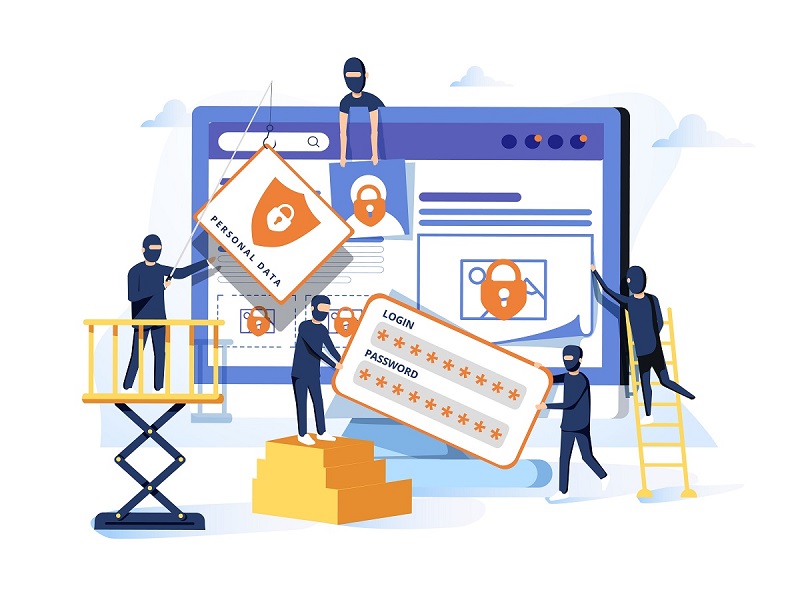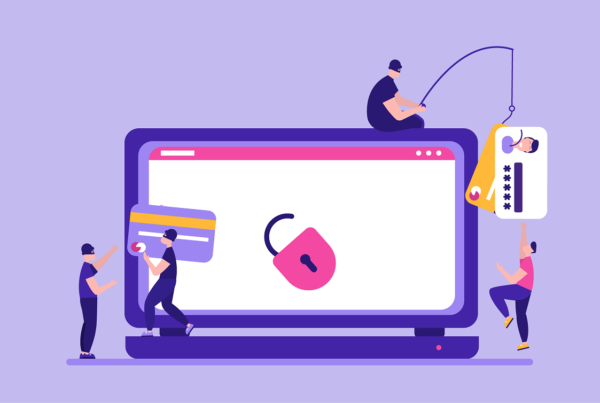
The internet is mostly an amazing place, so our goal as parents is to help our kids to get the most out of it and to do so safely. We bring our kids up, telling them it’s good to share, but online it’s very different – we have to teach them to be Share Aware. Every time you visit a website, use an app on your phone or tablet, or even use a smart TV or another home device that connects to the internet, you are making decisions about how to share your information and data, and with whom, even though you might not be thinking about it.
Personal vs Private Information
Some kinds of information are safe to share on the internet and some are just not! The starting point is to make a clear distinction between personal (safe)and private (unsafe) information and help your kids understand the difference.
Personal information can’t be used to identify you, so it is OK to share it, but not necessarily freely. It is the pieces of your life that you might choose to share at an in-person networking event or a party. It could include your first name, username, opinions, interests and favourite activities.
Private information, on the other hand, can be used to identify you or locate you, so it should never be shared online. It could include your full name, identity number, address, school name, passwords, PINs and upcoming events in your diary.
Young people can be vulnerable, as they place a great deal of importance on developing an online personality, and many sites ask for their private information. While some are savvy enough to set up strict privacy restrictions on their games, apps and profiles, it is vital to keep encouraging them to be proactive about the risks associated with providing private information online.
To an identity thief, private information can provide instant access to financial accounts, credit record, and other assets. If you think no one would be interested in your personal information, think again. Anyone can be a victim of identity theft.
Common Sense has some great educational resources that we’ve tapped into. They suggest chatting to your kids about the kind of information that is asked for by the app or internet sites they like to frequent – such as social networking, video-sharing, youth discussion, ask-an-expert or gaming sites.
Ask them to think about what information is required?
First name, username, password, password hint, gender, the state you live in, parent’s permission, etc. might be required because it helps distinguish one person from another. Or perhaps the website is keeping a record of who uses it.
Then ask them what information they think might be optional?
Parent’s email, birthday, state, country, gender, etc. is likely optional because the website does not require it for payment or to distinguish people. Or perhaps the website wants to keep track of this kind of information.
Finally, get them to think about why apps and websites ask for this kind of information?
They want to get people to pay to use the site, they want to send messages to people who are signing up, or they want to try to sell things to those people.
Point out to your kids that they do not have to fill out fields on websites if they are not required. Required fields are usually marked by an asterisk (*) or are highlighted in red.
Phishing vs Hacking
Criminals or hackers often get private information online by lying about who they are, to convince people to share account numbers, passwords, and other information, they use this information to gain access to other information, commit online crimes or make purchases in your name.
This type of scam is called “phishing“: criminals send an email, text, or a pop-up message that appears to come from your bank, a government agency, an online seller or another organization with which you do business. The message asks you to click on a website or call a phone number to update your account information or claim a prize or benefit. It might suggest something bad will happen if you don’t respond quickly with your private information. In reality, legitimate businesses should never use email, pop-ups, or text messages to ask for your personal information.
Whilst the hacking of large databases managed by businesses or government agencies, to steal the private information from many people at once, makes the news, what is not public knowledge, is the extent to which home devices are vulnerable, particularly as our homes become ever “smarter”. Our Dial A Nerd partners have identified the opportunities that hackers use to breach a home network and personal devices:
- Malicious websites – a breeding ground for Spyware/Adware/Ransomware/Trojans, which can give a hacker access to your emails/credit card/laptop camera;
- Passwords that are too weak or are reused for multiple log-ins for various sites or apps where security has been compromised;
- Use of public WiFi networks – a “Man In The Middle attack” allows a hacker to see all traffic coming and going into your laptop/mobile phone.
Be Share Aware
Of course, in our digital lives of today, we need to constantly pick and choose about how and when to share. Some apps and websites wouldn’t work properly without some of your information or data – such as social networking sites that need to store the contact details that friends provide so that they can be connected, navigation or taxi apps that need to know your location or online stores that need your address to make purchase deliveries. where to send your purchases.
While you can’t enjoy the benefits of the internet without sharing some personal information, you can take steps to share only with organizations you know and trust. Don’t give out your personal information unless you first find out how it’s going to be used and how it will be protected, and change your passwords regularly, to keep your information secure.
Keep reminding your kids that the golden rule above all is: we should always be careful about sharing any information with people we don’t actually know in real life!
Be In Touch is a passionate team of family digital wellness activists, working with schools, parents, learners, NGOs, corporates and the government. Collecting real data on what kids are doing and experiencing online (including online exposure to cyberbullying, stranger contact, pornography, violence, self-harm, drugs & alcohol), they use this to pinpoint practical and implementable solutions. They aim to simplify the complicated world of family digital wellness and online safety, with practical resources, products and solutions that parents and children really need! Sign up for their newsletter and follow them on Facebook and Instagram for great tips that will help your whole family!



